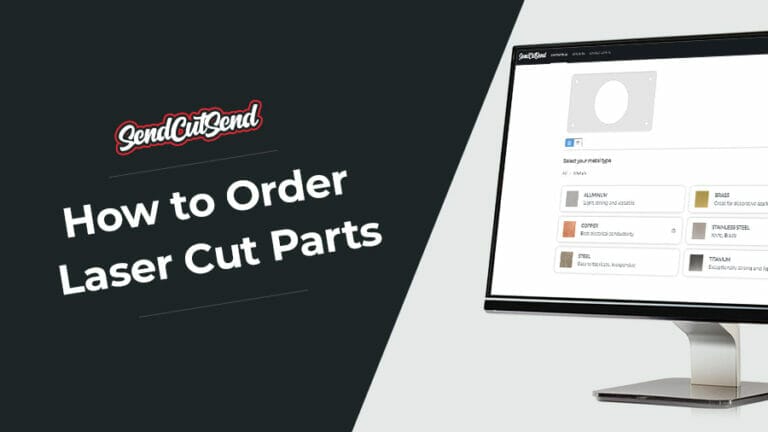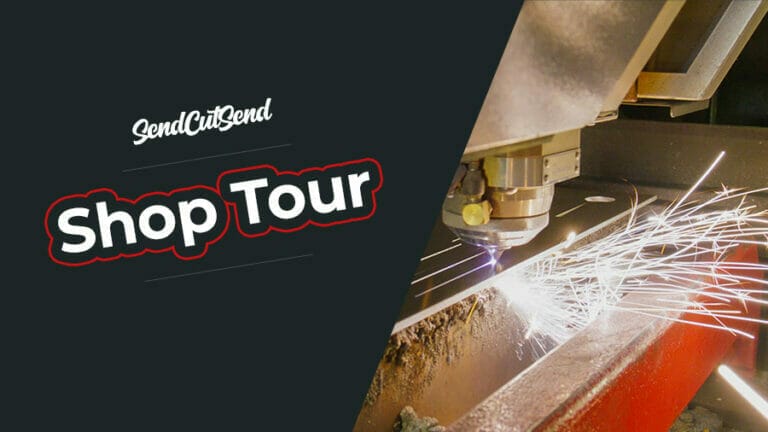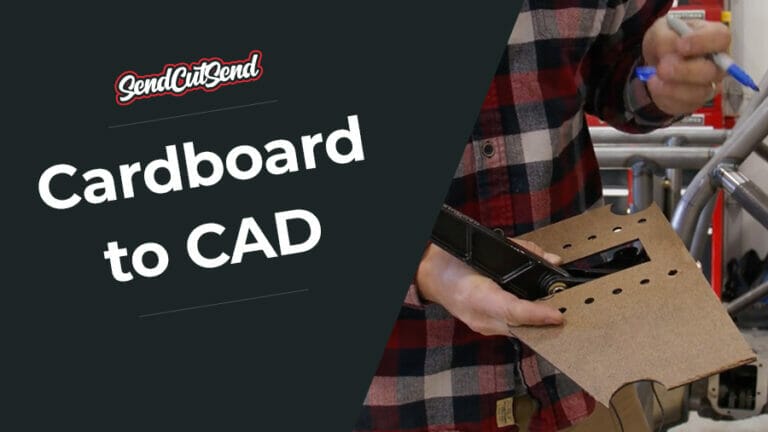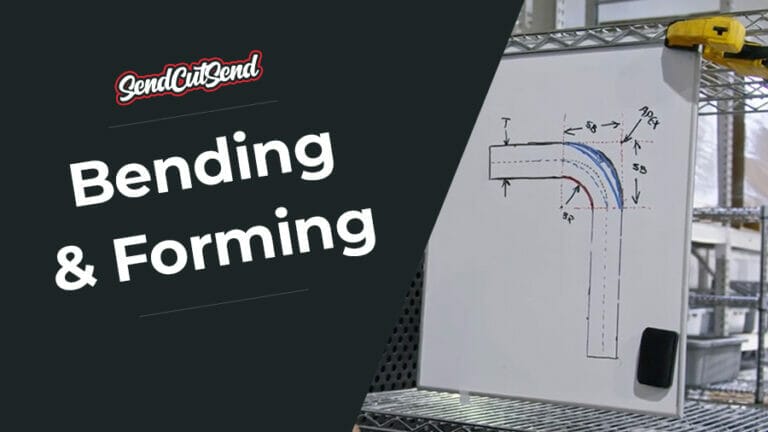In nearly every custom project the material you use matters. There are numerous properties that might factor into the decision of which to use. In this article we’re going to use material strength across a variety of scenarios/criteria to compare the strongest and weakest materials that SendCutSend offers for custom sheet metal manufacturing.
While strength by itself may be a primary driver for your design, there are usually other factors to consider, such as weight, cost and even other processes the material can undergo (tapping, bending, etc.). How strong a material needs to be depends on your design and application. Often the best choice is a material that’s “strong enough” rather than the strongest material available. This allows you to optimize for those other factors.
The Different Ways to Measure Material Strength
There’s more than one way to measure how strong a material is. The one most people think of is tensile strength, or how much stress a part can resist in tension before it fails. But there are also shear strength, fatigue strength and even hardness can be used as an indicator for wear resistance. When you’re looking for a specific material for your project, it’s important to know which of these is important to your application. You can find these values for most of the properties we carry on our materials page.
Material Properties

Since we’re discussing material properties in this article, it’s important you know where to find these properties. For all the materials we offer, we provide a long list of properties, design considerations and available services. You can find all of that information by going to the materials section of our website and selecting a material and thickness.
The Importance of Material Weight
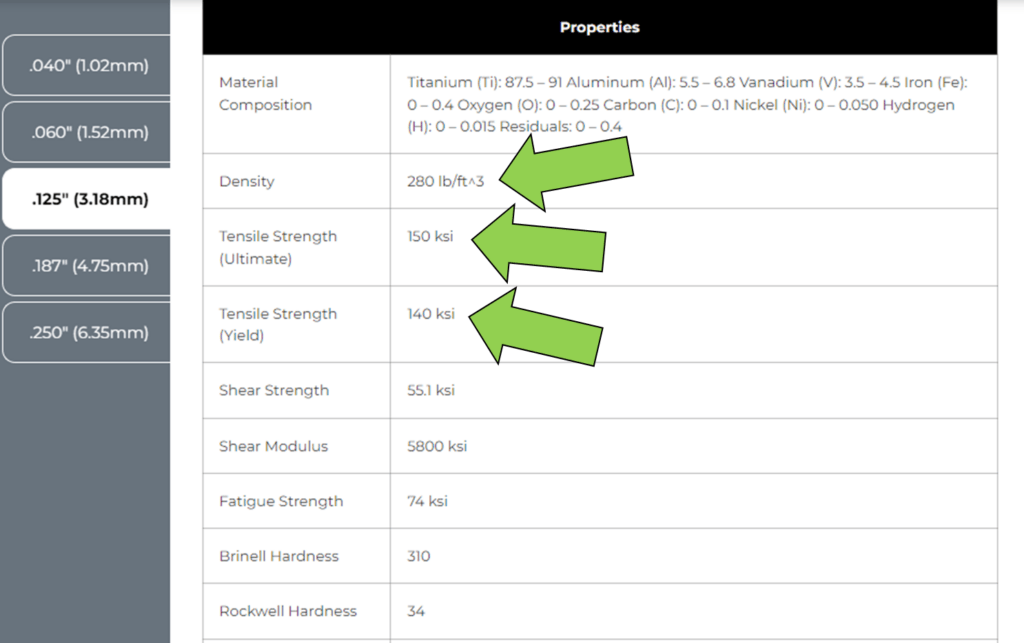
Weight is a common constraint in both design and material selection, especially. When your parts need to be both strong and light, you’ll want to look at materials with high strength-to-weight ratios.
Carbon Fiber – At the top of the pack when it comes to strength-to-weight, carbon fiber is a modern composite material. Not only is carbon fiber one of the strongest materials we offer, it’s also one of the lightest. If maximizing strength-to-weight is your goal, look no further than carbon fiber.
Titanium – Offering the strength of high end steels and the weight of aluminum, titanium is the strongest and lightest metal SendCutSend carries.
HDPE – At the other end of the spectrum is HDPE. As the name implies, it is a high-density plastic making it heavier than other plastics, but it is still relatively light compared to metals. While it doesn’t have the tensile strength of other materials, it is still tough, meaning it can take some abuse.
Copper – With a similar strength-to-weight ratio as HDPE, copper is not typically used as a structural material for high performance applications. It has other qualities that make it desirable, such as conductivity and its appearance.
SendCutSend does carry materials with a lower strength-to-weight ratio, but they aren’t generally considered for any application where strength is needed. Cork is a good example.
When Does Material Thickness Matter?
Some designs require a specific size or thickness of material. In most materials, strength doesn’t vary by thickness. The strongest material at any given thickness will depend on the thickness you need. Composites are an example of materials with mechanical properties that can easily vary, since they are direction dependent.
AR500 Steel – We offer steel in a variety of types and strengths. AR500 is incredibly resistant to both impact and wear. It’s one of the strongest materials we offer, if your project can use one of its available thicknesses.
UHMW Polyethylene – Tough and durable for a plastic, it’s one of the weaker materials SendCutSend carries, still rated with some minimum strength. It is self lubricating, impact resistant and can be easily cut with simple woodworking tools.
ACM (Aluminum Composite Material) – Probably the best example we carry of a material that can have varying strength as its thickness changes. ACM is made up of a thin skin of aluminum surrounding a polyethylene core. The aluminum skin stays the same thickness, it’s the core that changes as the panel thickness increases or decreases. This has an impact on the overall panel strength.
How Much Will Your Material Cost?
If any other factor influences material selection as much as weight, it would have to be cost. Very few designs are immune to the need to cut costs where possible. The good news is you don’t necessarily have to give up all of a materials strength just to reduce the cost of your parts.
4130 Chromoly Steel – A stronger alloy than mild steel. While 4130 is more expensive than mild steel, it can be significantly stronger. Where 4130 can save money is that it can be approximately as strong as Titanium, but at a fraction of the cost.
7075 Aluminum – A stronger alloy than 6061 aluminum. 7075 aluminum is close to twice as strong as 6061, but it’s only about 50% more expensive. A savvy design may be able to reduce the thickness appropriately to keep overall strength the same while lowering the total cost.
G10/FR4 – Like the stronger alloys of metal above, G10 is a composite material that happens to be stronger than the Linen Micarta we offer. In this case the increase in strength comes with a similar increase in cost. When a composite with even greater strength is needed, we also carry carbon fiber.
One more thing to note while we’re covering the cost aspect of your parts is the fact that material cost is only a portion of the total cost. The more complex a design is, the longer it will take to cut, which can also increase the cost of your parts. Buying parts at higher quantities, even two instead of a single piece, can be a great way to reduce per part cost.
SendCutSend Available Services
One of the best reasons for buying your parts from SendCutSend is all the additional services we offer. More than just getting your flat parts cut, you can get them bent, tapped, have hardware installed, we even do finishing. When your parts need any of these additional services, how do the strongest and weakest options look?
Bending
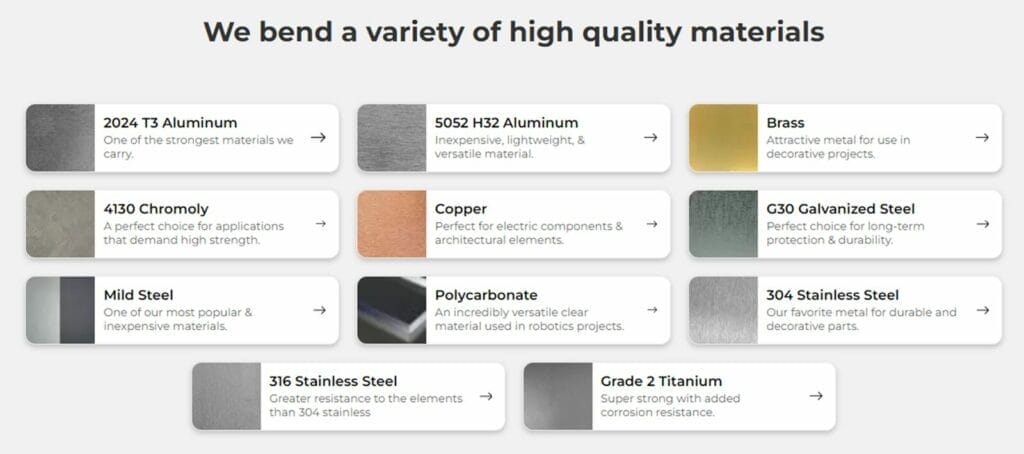
The strongest grades of each material are typically too hard to be bent without cracking, so pay attention to which materials can be bent. 4130 Chromoly, Grade 2 Titanium and 316 Stainless are at the top of the list for strength.
Polycarbonate, the only non-metal material SendCutSend bends, rounds out the weaker material that can be bent.
Tapping

When you need your part to hold a fastener, but there’s no room or access for a nut, you may be able to tap threads into the material directly.
Not all of our materials can be tapped, but there are some strong options on the list like 7075 aluminum. Similar to bending, stronger materials can be hard, making tapping much more difficult. Softer/weaker materials are easier to tap, but the threads won’t be as strong. Plastics like Delrin and HDPE are relatively hard for plastics, but not very strong compared to the metal materials at SendCutSend.
Hardware Installation
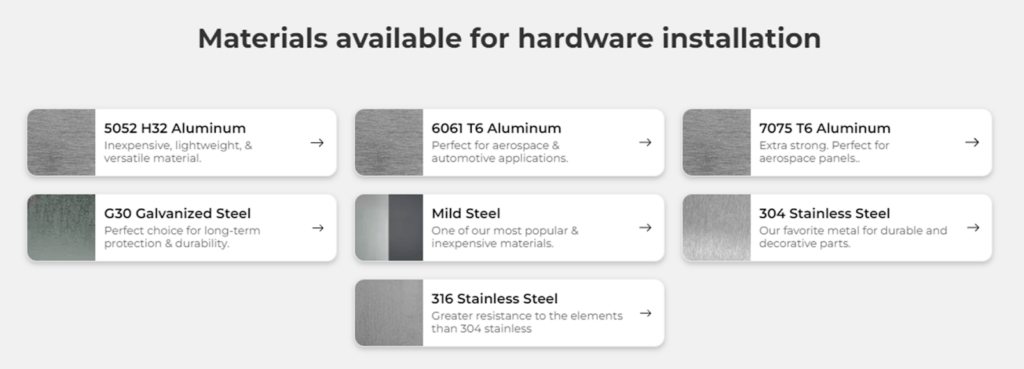
When you need your part to hold threads, but it’s just too thin, inserted hardware is your next best option. Inserted hardware works by tightly pressing the steel inserts into a hole. The insert is knurled to grip the material and keep it from twisting when fasteners are tightened. This means, like tapping, it doesn’t work as well in very hard (typically stronger) or very soft (typically weaker) materials. This is why the materials for hardware insertion are more limited to middle of the pack strength options.
Finishing
All of the finishing options we offer work only with metals. Only aluminum can be anodized, but we offer multiple grades, so you have some options on strength if anodizing is important for your parts. 7075 being the strongest and 5052 being the weakest.

Most of the metal materials we carry can be powder coated, so there’s some room to choose between stronger and weaker options. From 4130 Chromoly down to 5052 Aluminum and plenty of options in between.
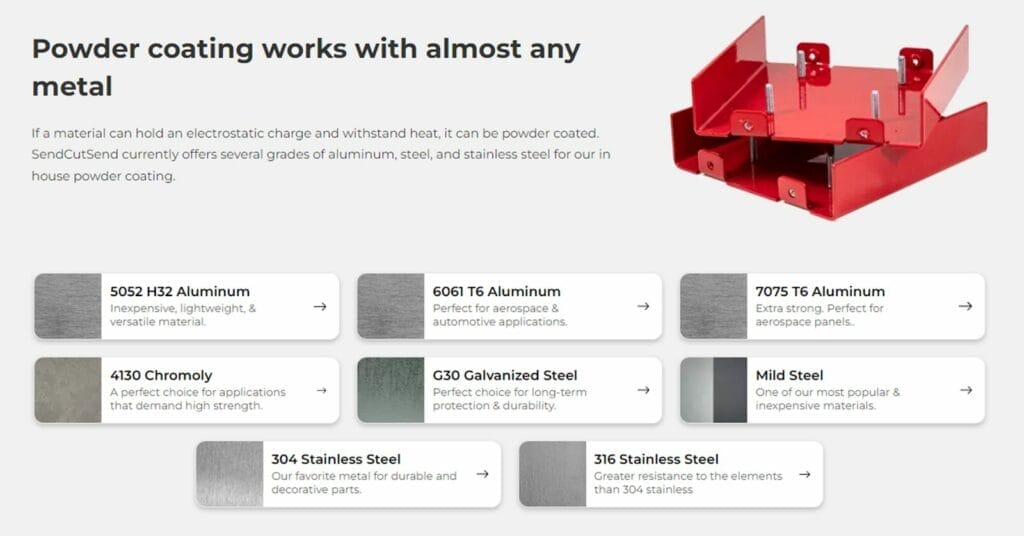
Lastly in our selection of finishes is zinc plating. Only available for two steel materials, but you still get to choose between a significantly stronger option (4130 Chromoly) or a relatively weaker one (Mild Steel).

165+ In Stock Materials
SendCutSend offers a lot of materials. When you need options from strong to weak, we’ve got you covered. At the top of the strength leaderboard you get AR500, Carbon Fiber and Grade 5 Titanium. Those three alone cover a wide range of other properties for you to use in your projects. At the weaker end of the scale, we carry some soft plastics and even unrated (for strength) materials like Birch Plywood and MDF.
So whether you need the strongest material available, or just something strong enough that minimizes weight or cost, SendCutSend has a material that could work for you.
When you’re ready to choose the best material for your project, get your instant pricing from SendCutSend.

